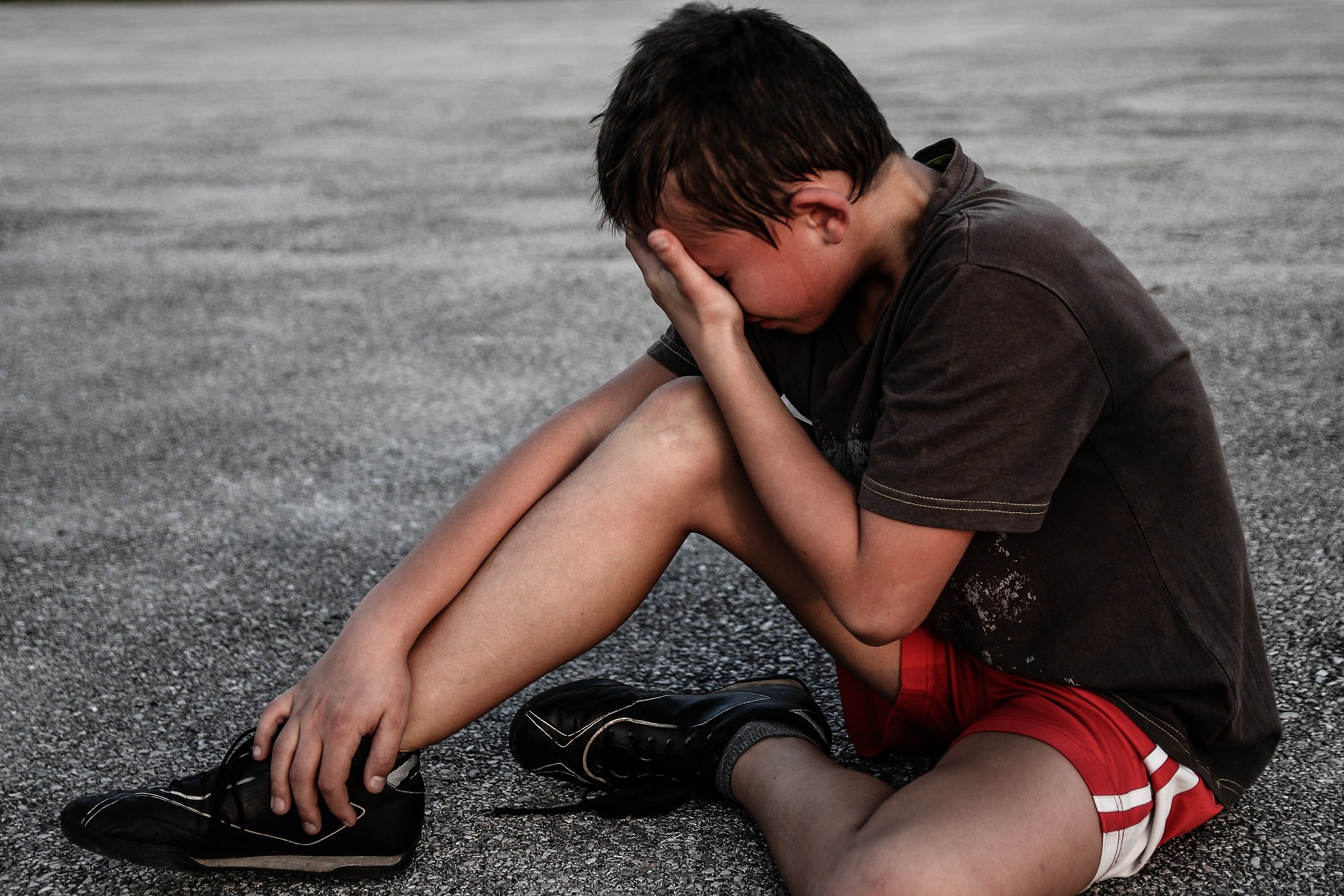Urgent Care
Diagnosis, treatment, and services for your everyday medical needs such as flu shots and lab work.

Children can be wild and intense when monkeying around with their friends or even by themselves. Whether it be on a playground, basketball court, or a park, kids love to play and explore their surroundings. Unfortunately, with this curiosity, inevitably an injury of some sort is bound to happen. The most common being some sort of sprain or strain. Most people believe these two things to be the same. Even though they sound alike, sprains and strains are completely different types of injury – and both are very common in children. Here, we will go over the differences between these two injuries and how your child can avoid them.
Sprains happen when a ligament suddenly stretches, twists, or tears. This injury can occur when a child falls or suffers a hit to the body. Sprains often affect the ankles, knees, or wrists.
Strains happen when a muscle or tendon is pulled or torn. This type of injury can happen suddenly, such as when a child overstretches a muscle, in a quick, jerking movement. Or it can happen over time if a child overuses a muscle or tendon. Overuse can occur during activities that require movements that are performed over and over.
Those who are most susceptible are teens that are active, but those who play sports are more at risk for a sprain or a strain. These injuries are not as common in younger children because their growth plates are weaker than the muscles or tendons and are more likely to be injured instead of the ligament.
Your child’s healthcare provider makes the diagnosis with a physical exam. During the exam, he or she will ask about your child’s health history and how the injury happened. They will also find where the pain is to help determine where the injury may be. If this is not enough, your child may need an X-ray, MRI, or CT scan.
In most cases, sprains and strains happen in some sort of sports injury or other intense physical activity. They are from either injury or overuse of muscles or joints. Many sports injuries can be prevented by ensuring your child warms up first, trains and conditions properly wears the right protective gear, and uses the right equipment.
You can also help your child prevent overuse injuries by making sure your child sets aside one to two days each week for rest from competitive sports and training and takes breaks from a specific sport during the year. This is extremely important and might be difficult because as we all know, children love playing around, but it is crucial to have them understand that by not resting they are putting themselves at risk for an injury. Also, encourage your child to focus on fun, skill-building, safety, and sportsmanship when playing sports which will lead to a proactive lifestyle and a healthy way of competing.
Overall, treatment will depend on your child’s symptoms, age, and general health. It will also depend on the severity of the condition. Initial treatment for a sprain or a strain includes rest, ice, compression, and elevation (RICE). Other routes to take would be pain medicines, such as ibuprofen, a splint, cast, a removable walking boot, crutches or wheelchair, physical therapy to stretch and strengthen the injured muscles, ligaments, and tendon, and lastly, surgery. Surgery may not be necessary and is not commonly needed, but occasionally is needed if there is a fracture
In most cases, sprains and strains are not something that should keep you up at night. The recovery time is rather quick and 9 out of 10 times, your child will be back to normal in no time. Still, as a parent, you worry and love your child and would never want to see them in anguish. With that being said, do your best to educate them on the dos and don’ts of safe play and if there does come a time when your little one injures themselves, the professionals at Chai Care will make sure they receive the treatment they need!
* Legal disclaimer: The content of this article and the entire Chai Care blog is for educational purposes only; it does NOT constitute medical advice and must not be considered as such. Please consult a medical professional regarding any symptoms or health concerns you or your loved ones.
Nov 02, 2022
For most people, apologizing is no easy task. Sometimes you may not even feel that you are wrong but choose to apologize just to keep the peace. The truth is telling someone that you are sorry is healthy for the mind, body, and soul. It’s a way to cleanse yourself of ego and self-manufactured pride and can literally make you a healthier person!
We’ve all had a huge fight with a friend. Whether you’re right or they are, no one feels good. Then comes the waiting game. Who is going to apologize to who? You find yourself in a game of chicken, anticipating a long, heartfelt apology but it never comes. The more you wait, the more tension builds.
And builds…
And builds…
If you’re like me, you start to begin feeling ill. This tension takes a toll not just on your mental health but on your physical health too.
It’s been weeks since the two of you have spoken and this pointless fight is now beginning to have real-world consequences. You’re having a difficult time getting out of bed in the morning, your old habits are now pointless and maybe even are abusing drugs and alcohol. That tension you originally felt has mutated into a rage monster and an apology will no longer suffice. All over what? A stupid little argument that you can’t even remember.
Yes, this is a situation that I went through years ago and deeply regret but was also an amazing learning experience. Even though that friend and I never forgave one another, I made a personal vow to myself that I would never do anything like that ever again. Not a single positive thing came from not apologizing and in fact, only made me worse for it. It may sound crazy but learning the ability to admit guilt and apologize for my wrongdoings has not only made me a happier person but a healthier one too.
There’s nothing worse than a disingenuous apology. These empty words feel more like a slap in the face than an admission of guilt and it is crucial to mean what you say and say what you mean. This person that you’re trying to make up with is a friend or a loved one which means they know when you are BS’ing them or not. If they get even a whiff of sarcasm or that you are in some way patronizing them, good luck because you’ll be sleeping on the couch that night.
Before you rush to apologize, a lazy way to get yourself off the hook, really listen to what the person is telling you. More likely than not, what they are saying can really benefit you. Whether they don’t appreciate your sudden burst of anger or your unhealthy lifestyle, this is a moment to not only say sorry but have a moment of reflection. This person cares and wants the best for you so don’t neglect their advice.
Outside of apologizing to others, many people (including myself) have a hard time absorbing an apology. Whether this is from childhood trauma or a manipulative relationship, it’s crucial to understand that this incident took place in the past and this person really cares about you. It’s extremely unhealthy for not just the relationship but your own mental health to let past experiences trickle into your current life. This isn’t to say you shouldn’t use past events to help navigate you through current situations, it just means you can’t let them control you.
Sometimes it really isn’t your fault. You make a genuine apology and listen to what the other person has to say and for some unexplainable reason, they don’t accept your words to be true. There’s no rhyme or reason to it so there’s no need to try and make sense of it because this person had already made up their mind before a single word left your mouth. Even though it’ll sting, this is another important lesson—how not to handle an apology. If someone isn’t emotionally mature enough to care when someone is being vulnerable and really trying to make amends, maybe it’s time to cut ties.
At the end of the day, no one likes to fight. Well, maybe the people who compete in the UFC do but that’s a different story. When you truly care about someone, expressing how you feel and swallowing your pride is worth it and will only make you an overall better person. Even those times when you feel that you have done nothing wrong, listen to what is being said to you because there will most likely be some wisdom to gain.
* Legal disclaimer: The content of this article and the entire Chai Care blog is for educational purposes only; it does NOT constitute medical advice and must not be considered as such. Please consult a medical professional regarding any symptoms or health concerns you or your loved ones.